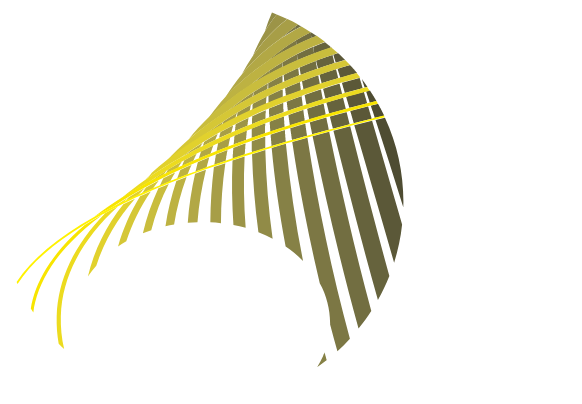Close-to-market-oplossing voor fossielvrije landbouw
Het HYPERFARM-project heeft € 5,17 miljoen gekregen uit het Horizon 2020 onderzoeks- en innovatieprogramma van de Europese Unie om een effectieve decarbonisatie van landbouwbedrijven te realiseren door gebruik te maken van agrivoltaïsche systemen, terwijl de gewasopbrengst en de landbouwproductiviteit behouden blijven. De oplossingen zullen worden ontwikkeld door de integratie van agrivoltaïsche systemen in boerderijen waar de energieproductie in verschillende gevallen zal worden gedemonstreerd.
De conventionele landbouwproductie is sterk afhankelijk van fossiele brandstoffen, vooral vanwege het vermogen om tegen lage kosten energie te leveren. Het klimaatbeleid van de EU, het VN-akkoord van Parijs en de onzekere toekomst van de beschikbaarheid en prijzen van fossiele brandstoffen wijzen echter op de noodzaak om energie-efficiëntie in andere systemen te onderzoeken. Het concurrentievermogen van fotovoltaïsche zonne-energie (PV) ten opzichte van andere hernieuwbare energiebronnen is de afgelopen tien jaar dramatisch veranderd, zodat PV nu net zo concurrerend is als windenergie. Het Internationaal Energieagentschap verwacht dat zonne-energie tegen 2050 4,7 terawatt zal bereiken, waardoor zonne-energie de grootste elektriciteitsbron ter wereld zal worden.
De meest gebruikelijke aanpak voor een zonne-installatie in Europa is op daken van industriële of particuliere gebouwen. Pas onlangs worden alternatieve locaties voor zonnepanelen, zoals akkerlanden, onderzocht. Dit heeft geleid tot veelbelovende bevindingen op het gebied van de efficiëntie van zonnepanelen voor energieopwekking in akkerlandomgevingen.
Het HYPERFARM-project
PNO Innovation zal samen met het HyPeRfarm-consortium nauw samenwerken om een solide business case voor boeren te ontwikkelen en hen te helpen de implementatie van de productie van hernieuwbare energie op hun boerderij en de lokale inzet ervan te vergemakkelijken. Het project richt zich op het op een kosteneffectieve manier aantonen dat lokale energieproductie door het integreren van agrivoltaïsche systemen op landbouwgrond economisch voordelig is voor boeren. Bovendien zal het de energetische zelfvoorziening, de duurzaamheid en de vergroting van de veerkracht van boerenbedrijven verbeteren. Het HYPERFARM-project heeft een reeks zeer ambitieuze doelstellingen gedefinieerd die tot doel hebben een positieve verandering in de agrovoedingssector teweeg te brengen:
- het ontwikkelen van geoptimaliseerde agrivoltaïsche systemen om een duurzame of zelfs verbeterde gewasproductie te garanderen, door gelijktijdige implementatie van gewasbeschermingsoplossingen en bijbehorende modelleringstools.
- H2-productie en -gebruik op een kosteneffectieve manier implementeren als betrouwbare energiebron en zware machines aanpassen om de afhankelijkheid van fossielen te verminderen en de uitstoot aanzienlijk te verlagen
- inzetten op de elektriciteitsproductie op boerderijen in de richting van de elektrificatie van boerderijactiviteiten door gebruik te maken van e-robotica op het veld, intelligente klimaatbeheersing en e-gestuurde pyrolyse.
- de business case en de publieke aanvaardbaarheid aantonen van de productie en het gebruik van op zonne-energie gebaseerde energiebronnen lokaal op de boerderij. Denk hierbij aan dagelijkse landbouwactiviteiten en de infrastructuur voor het voeden van de dieren en de verwarming/koeling aan te drijven door middel van lucht/water-warmtepompen en warmtewisselaars.
HYPERFARM-consortium
PNO zal samenwerken met 11 partners uit 4 landen in Europa (België, Denemarken, Duitsland, Nederland), waaronder belangrijke partners zoals KU Leuven, Fraunhofer Society, Colruyt Group en Fuelsave.
De expertise van PNO Innovation zal waarde toevoegen bij de kostenanalyse en exploitatie, evenals bij de activiteiten op het gebied van verspreiding, communicatie en clustering. Het implementatieplan omvat zeven werkpakketten, waarvan er drie technisch van aard zijn.
Op 9 november 2020 staat de eerste consortiumbijeenkomst gepland, waar de eerste projectstappen zullen worden gedefinieerd.



